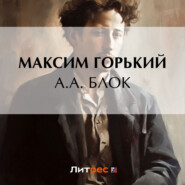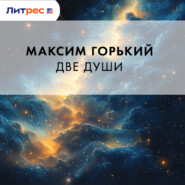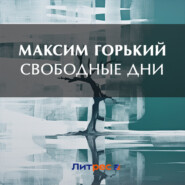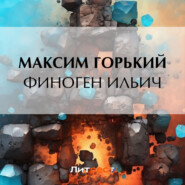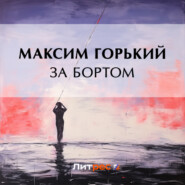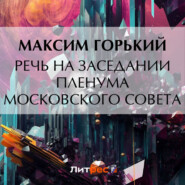По всем вопросам обращайтесь на: info@litportal.ru
(©) 2003-2025.
✖
The Man Who Was Afraid
Настройки чтения
Размер шрифта
Высота строк
Поля
“And is it just the same as the other cities?”
“Of course. How else should it be?”
“And what is beyond Astrakhan?”
“The sea. The Caspian Sea it is called.”
“And what is there?”
“Fishes, queer fellow! What else can there be in the water?”
“There’s the city Kitezh standing in the water.”
“That’s a different thing! That’s Kitezh. Only righteous people live there.”
“And are there no righteous cities on the sea?”
“No,” said Ignat, and, after a moment’s silence, added: “The sea water is bitter and nobody can drink it.”
“And is there more land beyond the sea?”
“Certainly, the sea must have an end. It is like a cup.”
“And are there cities there too?”
“Again cities. Of course! Only that land is not ours, it belongs to Persia. Did you see the Persians selling pistachio-nuts and apricots in the market?”
“Yes, I saw them,” replied Foma, and became pensive.
One day he asked his father:
“Is there much more land left?”
“The earth is very big, my dear! If you should go on foot, you couldn’t go around it even in ten years.”
Ignat talked for a long time with his son about the size of the earth, and said at length:
“And yet no one knows for certain how big it really is, nor where it ends.”
“And is everything alike on earth?”
“What do you mean?”
“The cities and all?”
“Well, of course, the cities are like cities. There are houses, streets – and everything that is necessary.”
After many similar conversations the boy no longer stared so often into the distance with the interrogative look of his black eyes.
The crew of the steamer loved him, and he, too, loved those fine, sun-burnt and weather-beaten fellows, who laughingly played with him. They made fishing tackles for him, and little boats out of bark, played with him and rowed him about the anchoring place, when Ignat went to town on business. The boy often heard the men talking about his father, but he paid no attention to what they said, and never told his father what he heard about him. But one day, in Astrakhan, while the steamer was taking in a cargo of fuel, Foma heard the voice of Petrovich, the machinist:
“He ordered such a lot of wood to be taken in. What an absurd man! First he loads the steamer up to the very deck, and then he roars. ‘You break the machinery too often,’ he says. ‘You pour oil,’ he says, ‘at random.’”
The voice of the gray and stern pilot replied:
“It’s all his exorbitant greediness. Fuel is cheaper here, so he is taking all he can. He is greedy, the devil!”
“Oh, how greedy!”
This word, repeated many times in succession, fixed itself in Foma’s memory, and in the evening, at supper, he suddenly asked his father:
“Papa!”
“What?”
“Are you greedy?”
In reply to his father’s questions Foma told him of the conversation between the pilot and the machinist. Ignat’s face became gloomy, and his eyes began to flash angrily.
“That’s how it is,” ejaculated Ignat, shaking his head. “Well, you – don’t you listen to them. They are not your equals; don’t have so much to do with them. You are their master, they are your servants, understand that. If we choose to, we can put every one of them ashore. They are cheap and they can be found everywhere like dogs. Understand? They may say many bad things about me. But they say them, because I am their master. The whole thing arises because I am fortunate and rich, and the rich are always envied. A happy man is everybody’s enemy.”
About two days later there was a new pilot and another machinist on the steamer.
“And where is Yakov?” asked the boy.
“I discharged him. I ordered him away.”
“For that?” queried Foma.
“Yes, for that very thing.”
“And Petrovich, too?”
“Yes, I sent him the same way.”
Foma was pleased with the fact that his father was able to change the men so quickly. He smiled to his father, and, coming out on the deck, walked up to a sailor, who sat on the floor, untwisting a piece of rope and making a swab.
“We have a new pilot here,” announced Foma.
“I know. Good health to you, Foma Ignatich! How did you sleep?”
“And a new machinist, too.”
“And a new machinist. Are you sorry for Petrovich?”
“Really? And he was so good to you.”
“Well, why did he abuse my father?”
“Of course. How else should it be?”
“And what is beyond Astrakhan?”
“The sea. The Caspian Sea it is called.”
“And what is there?”
“Fishes, queer fellow! What else can there be in the water?”
“There’s the city Kitezh standing in the water.”
“That’s a different thing! That’s Kitezh. Only righteous people live there.”
“And are there no righteous cities on the sea?”
“No,” said Ignat, and, after a moment’s silence, added: “The sea water is bitter and nobody can drink it.”
“And is there more land beyond the sea?”
“Certainly, the sea must have an end. It is like a cup.”
“And are there cities there too?”
“Again cities. Of course! Only that land is not ours, it belongs to Persia. Did you see the Persians selling pistachio-nuts and apricots in the market?”
“Yes, I saw them,” replied Foma, and became pensive.
One day he asked his father:
“Is there much more land left?”
“The earth is very big, my dear! If you should go on foot, you couldn’t go around it even in ten years.”
Ignat talked for a long time with his son about the size of the earth, and said at length:
“And yet no one knows for certain how big it really is, nor where it ends.”
“And is everything alike on earth?”
“What do you mean?”
“The cities and all?”
“Well, of course, the cities are like cities. There are houses, streets – and everything that is necessary.”
After many similar conversations the boy no longer stared so often into the distance with the interrogative look of his black eyes.
The crew of the steamer loved him, and he, too, loved those fine, sun-burnt and weather-beaten fellows, who laughingly played with him. They made fishing tackles for him, and little boats out of bark, played with him and rowed him about the anchoring place, when Ignat went to town on business. The boy often heard the men talking about his father, but he paid no attention to what they said, and never told his father what he heard about him. But one day, in Astrakhan, while the steamer was taking in a cargo of fuel, Foma heard the voice of Petrovich, the machinist:
“He ordered such a lot of wood to be taken in. What an absurd man! First he loads the steamer up to the very deck, and then he roars. ‘You break the machinery too often,’ he says. ‘You pour oil,’ he says, ‘at random.’”
The voice of the gray and stern pilot replied:
“It’s all his exorbitant greediness. Fuel is cheaper here, so he is taking all he can. He is greedy, the devil!”
“Oh, how greedy!”
This word, repeated many times in succession, fixed itself in Foma’s memory, and in the evening, at supper, he suddenly asked his father:
“Papa!”
“What?”
“Are you greedy?”
In reply to his father’s questions Foma told him of the conversation between the pilot and the machinist. Ignat’s face became gloomy, and his eyes began to flash angrily.
“That’s how it is,” ejaculated Ignat, shaking his head. “Well, you – don’t you listen to them. They are not your equals; don’t have so much to do with them. You are their master, they are your servants, understand that. If we choose to, we can put every one of them ashore. They are cheap and they can be found everywhere like dogs. Understand? They may say many bad things about me. But they say them, because I am their master. The whole thing arises because I am fortunate and rich, and the rich are always envied. A happy man is everybody’s enemy.”
About two days later there was a new pilot and another machinist on the steamer.
“And where is Yakov?” asked the boy.
“I discharged him. I ordered him away.”
“For that?” queried Foma.
“Yes, for that very thing.”
“And Petrovich, too?”
“Yes, I sent him the same way.”
Foma was pleased with the fact that his father was able to change the men so quickly. He smiled to his father, and, coming out on the deck, walked up to a sailor, who sat on the floor, untwisting a piece of rope and making a swab.
“We have a new pilot here,” announced Foma.
“I know. Good health to you, Foma Ignatich! How did you sleep?”
“And a new machinist, too.”
“And a new machinist. Are you sorry for Petrovich?”
“Really? And he was so good to you.”
“Well, why did he abuse my father?”












